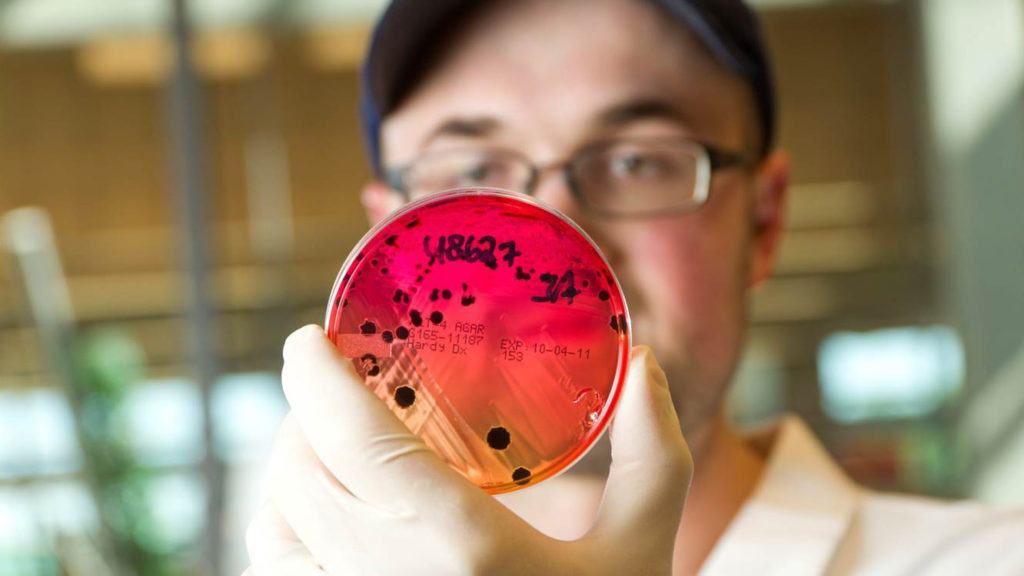
The CSU Veterinary Diagnostic Laboratories have earned full accreditation status from the accreditation committee of the American Association of Veterinary Laboratory Diagnosticians. This accreditation extends through 2022.
Accreditation by the AAVLD is based on an on-site audit which follows a prolonged detailed review of laboratory documents, including the quality-assurance and policy manuals, system standard operating procedures, training records, financial status and information technology policies.
Four members of the accreditation committee and special auditors conducted the audit, reviewing equipment, facilities, safety procedures and compliance with the laboratory’s system, as well as testing standard operating procedures in an intense five-day inspection. They also met with members of the laboratory’s external advisory committee, Gregg Dean, head of the Microbiology, Immunology and Pathology department, and Dr. Mark Stetter, dean of the College of Veterinary Medicine and Biomedical Sciences.

“The accreditation is critical for the CSU Veterinary Diagnostic Lab to remain a level 1 laboratory in the National Animal Health Laboratory Network,” said lab director Barb Powers. “It also assures our clients that results are accurate and of the highest quality by certifying the competence of personnel, the proper function of the facilities and equipment and appropriate documentation of all laboratory tests and processes.”
Based on the internationally recognized ISO/IEC 17025 standard, AAVLD accreditation is consistent with the World Organization for Animal Health (OIE) Quality Standard for Veterinary Laboratories. Accreditation is a formal recognition of the competency of laboratories and increases client confidence in diagnostic test results. In order to further demonstrate technical competence between accreditation assessments, personnel from accredited laboratories are also required to participate in relevant proficiency testing programs.
Accreditation contributes to continuous improvement and is a management tool that can be used to increase laboratory efficiency, which is critical in times of emergency or limited funding.
Laboratories participating in the USDA’s National Animal Health Laboratory Network may be involved in surveillance for early detection of foreign animal disease, surge testing during an outbreak, and testing samples during the outbreak recovery phase. As such, there must be a high degree of confidence in the quality of the laboratories and associated test results. Accreditation is also necessary for assurance and acceptance of test results for live animal export to other countries.